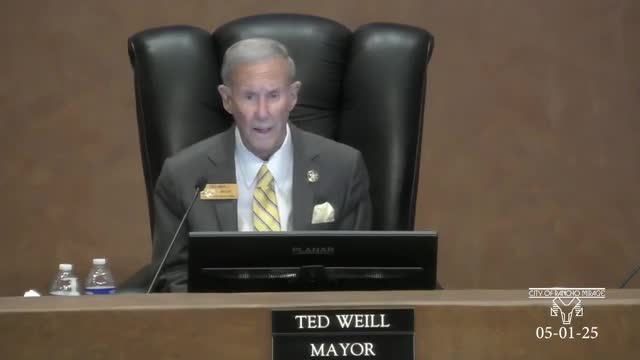Eisenhower Health leaders update Rancho Mirage council on expansion, new services and fundraising
Get AI-powered insights, summaries, and transcripts
Subscribe
Summary
Eisenhower Health Foundation officials told the Rancho Mirage City Council they are expanding facilities and services across the Coachella Valley, adding trauma services and beds, rolling out mobile clinics, and progressing on a $350 million capital campaign with $32 million pledged for the Cardiovascular Institute.
Eisenhower Health Foundation leaders told the Rancho Mirage City Council on May 1 that the hospital is expanding clinical sites and services across the Coachella Valley and is advancing a large capital campaign to fund a new Cardiovascular Institute and other campus improvements.
The update, given by Michael Landis, president of Eisenhower Health Foundation, and Monica Vasquez, director of community giving, outlined recent facility additions, service expansions and fundraising milestones and included specific operational figures that city officials said they value for planning and workforce discussions.
Landis said Eisenhower now operates “more than a hundred clinics” across the valley and has opened a primary care facility in Indio. He also described a philanthropy-funded mobile clinic used to bring vaccinations and primary care directly to under‑served locations: “We invested in a whole mobile clinic…we staff it with our resident physicians.”
Landis highlighted three recent changes intended to reduce emergency-department delays: adding 10 new ED rooms, licensure for 26 additional hospital beds and moving toward trauma-center designations. He said Eisenhower is now a trauma center and expects to reach trauma level 3 in roughly 18 months as it recruits trauma surgeons; the hospital is working toward higher levels in subsequent years.
The foundation also described patient-volume growth: Landis reported 95,000 emergency‑room visits in 2024 and said the hospital is on track to exceed 100,000 visits in 2025. He attributed much of the volume increase to the hospital’s reputation, noting a 2024 survey that found roughly 75% of respondents across the valley preferred Eisenhower for non‑life‑threatening care.
On fundraising, Landis said the Eisenhower campaign is in phase one and that donors have committed materially to the Washington Family Center. “We have raised…$247,000,000 and we just received a $7,000,000 commitment yesterday,” he said, and described the Cardiovascular Institute as an 82,000-square-foot, four‑story facility the foundation aims to complete as an outpatient center over the next several years.
Monica Vasquez and Landis also described other projects tied to the campaign: a memory‑care day program designed for up to 200 people, expanded cancer‑care facilities, a larger inpatient pharmacy with automated systems and a new cardiovascular pavilion inside the hospital. Landis said the campaign target is roughly $350 million to finish all phases and that the city’s earlier support for the cardiovascular initiative was important.
Council members thanked Eisenhower representatives and noted the hospital’s role as a major local employer; Councilmember Downs emphasized that the city is working to develop affordable housing that can help staff live near the hospital. There were no formal council actions tied to the presentation.
The presentation concluded with the mayor and council reiterating support for the hospital and the value of continuing city‑hospital coordination on workforce and planning issues.
